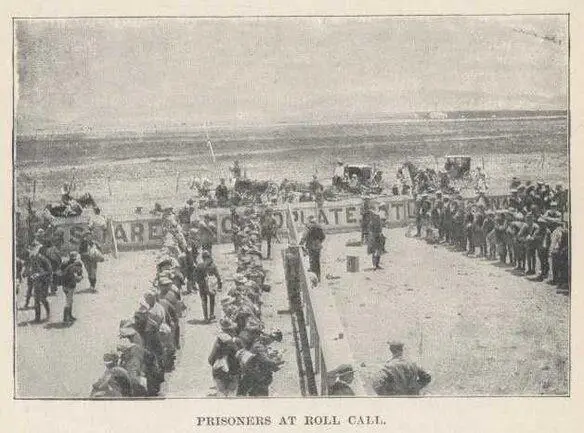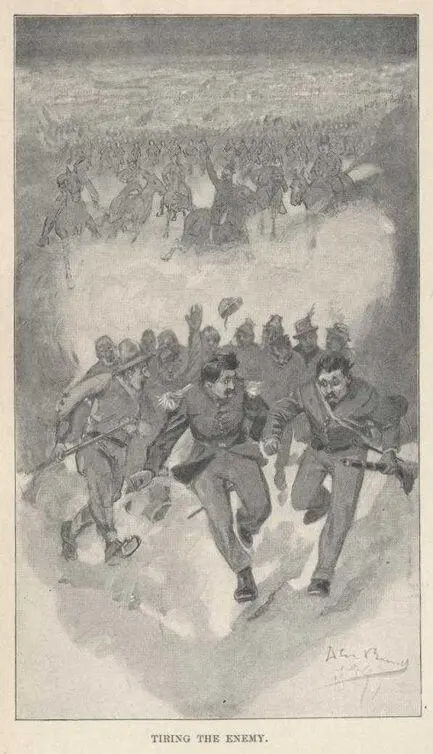Mark Twain - Following the Equator
Здесь есть возможность читать онлайн «Mark Twain - Following the Equator» весь текст электронной книги совершенно бесплатно (целиком полную версию без сокращений). В некоторых случаях можно слушать аудио, скачать через торрент в формате fb2 и присутствует краткое содержание. Год выпуска: 2004, Жанр: Классическая проза, Юмористическая проза, на английском языке. Описание произведения, (предисловие) а так же отзывы посетителей доступны на портале библиотеки ЛибКат.
- Название:Following the Equator
- Автор:
- Жанр:
- Год:2004
- ISBN:нет данных
- Рейтинг книги:3 / 5. Голосов: 1
-
Избранное:Добавить в избранное
- Отзывы:
-
Ваша оценка:
- 60
- 1
- 2
- 3
- 4
- 5
Following the Equator: краткое содержание, описание и аннотация
Предлагаем к чтению аннотацию, описание, краткое содержание или предисловие (зависит от того, что написал сам автор книги «Following the Equator»). Если вы не нашли необходимую информацию о книге — напишите в комментариях, мы постараемся отыскать её.
Following the Equator — читать онлайн бесплатно полную книгу (весь текст) целиком
Ниже представлен текст книги, разбитый по страницам. Система сохранения места последней прочитанной страницы, позволяет с удобством читать онлайн бесплатно книгу «Following the Equator», без необходимости каждый раз заново искать на чём Вы остановились. Поставьте закладку, и сможете в любой момент перейти на страницу, на которой закончили чтение.
Интервал:
Закладка:
Jameson arrived in the presence of the Boers. They—according to precedent—were not visible. It was a country of ridges, depressions, rocks, ditches, moraines of mining-tailings—not even as favorable for cavalry work as Laing's Nek had been in the former disastrous days. Jameson shot at the ridges and rocks with his artillery, just as General Colley had done at the Nek; and did them no damage and persuaded no Boer to show himself. Then about a hundred of his men formed up to charge the ridge-according to the 58th's precedent at the Nek; but as they dashed forward they opened out in a long line, which was a considerable improvement on the 58th's tactics; when they had gotten to within 200 yards of the ridge the concealed Boers opened out on them and emptied 20 saddles. The unwounded dismounted and fired at the rocks over the backs of their horses; but the return-fire was too hot, and they mounted again, "and galloped back or crawled away into a clump of reeds for cover, where they were shortly afterward taken prisoners as they lay among the reeds. Some thirty prisoners were so taken, and during the night which followed the Boers carried away another thirty killed and wounded—the wounded to Krugersdorp hospital. "Sixty per cent. of the assaulted force disposed of"—according to Mr. Garrett's estimate.
It was according to Amajuba precedent, where the British loss was 226 out of about 400 engaged.
Also, in Jameson's camp, that night, "there lay about 30 wounded or otherwise disabled" men. Also during the night "some 30 or 40 young fellows got separated from the command and straggled through into Johannesburg." Altogether a possible 150 men gone, out of his 530. His lads had fought valorously, but had not been able to get near enough to a Boer to kick him around the Transvaal.
At dawn the next morning the column of something short of 400 whites resumed its march. Jameson's grit was stubbornly good; indeed, it was always that. He still had hopes. There was a long and tedious zigzagging march through broken ground, with constant harassment from the Boers; and at last the column "walked into a sort of trap," and the Boers "closed in upon it." "Men and horses dropped on all sides. In the column the feeling grew that unless it could burst through the Boer lines at this point it was done for. The Maxims were fired until they grew too hot, and, water failing for the cool jacket, five of them jammed and went out of action. The 7-pounder was fired until only half an hour's ammunition was left to fire with. One last rush was made, and failed, and then the Staats Artillery came up on the left flank, and the game was up."
Jameson hoisted a white flag and surrendered.
There is a story, which may not be true, about an ignorant Boer farmer there who thought that this white flag was the national flag of England. He had been at Bronkhorst, and Laing's Nek, and Ingogo and Amajuba, and supposed that the English did not run up their flag excepting at the end of a fight.

The following is (as I understand it) Mr. Garrett's estimate of Jameson's total loss in killed and wounded for the two days:
"When they gave in they were minus some 20 per cent. of combatants. There were 76 casualties. There were 30 men hurt or sick in the wagons. There were 27 killed on the spot or mortally wounded."
Total, 133, out of the original 530. It is just 25 per cent.—[However, I judge that the total was really 150; for the number of wounded carried to Krugersdorp hospital was 53; not 30, as Mr. Garrett reports it. The lady whose guest I was in Krugersdorp gave me the figures. She was head nurse from the beginning of hostilities (Jan. 1) until the professional nurses arrived, Jan. 8th. Of the 53, "Three or four were Boers"; I quote her words.]—This is a large improvement upon the precedents established at Bronkhorst, Laing's Nek, Ingogo, and Amajuba, and seems to indicate that Boer marksmanship is not so good now as it was in those days. But there is one detail in which the Raid-episode exactly repeats history. By surrender at Bronkhorst, the whole British force disappeared from the theater of war; this was the case with Jameson's force.
In the Boer loss, also, historical precedent is followed with sufficient fidelity. In the 4 battles named above, the Boer loss, so far as known, was an average of 6 men per battle, to the British average loss of 175. In Jameson's battles, as per Boer official report, the Boer loss in killed was 4. Two of these were killed by the Boers themselves, by accident, the other by Jameson's army—one of them intentionally, the other by a pathetic mischance. "A young Boer named Jacobz was moving forward to give a drink to one of the wounded troopers (Jameson's) after the first charge, when another wounded man, mistaking his intention; shot him." There were three or four wounded Boers in the Krugersdorp hospital, and apparently no others have been reported. Mr. Garrett, "on a balance of probabilities, fully accepts the official version, and thanks Heaven the killed was not larger."
As a military man, I wish to point out what seems to me to be military errors in the conduct of the campaign which we have just been considering. I have seen active service in the field, and it was in the actualities of war that I acquired my training and my right to speak. I served two weeks in the beginning of our Civil War, and during all that time commanded a battery of infantry composed of twelve men. General Grant knew the history of my campaign, for I told it him. I also told him the principle upon which I had conducted it; which was, to tire the enemy. I tired out and disqualified many battalions, yet never had a casualty myself nor lost a man. General Grant was not given to paying compliments, yet he said frankly that if I had conducted the whole war much bloodshed would have been spared, and that what the army might have lost through the inspiriting results of collision in the field would have been amply made up by the liberalizing influences of travel. Further endorsement does not seem to me to be necessary.

Let us now examine history, and see what it teaches. In the 4 battles fought in 1881 and the two fought by Jameson, the British loss in killed, wounded, and prisoners, was substantially 1,300 men; the Boer loss, as far as is ascertainable, was about 30 men. These figures show that there was a defect somewhere. It was not in the absence of courage. I think it lay in the absence of discretion. The Briton should have done one thing or the other: discarded British methods and fought the Boer with Boer methods, or augmented his own force until—using British methods—it should be large enough to equalize results with the Boer.
To retain the British method requires certain things, determinable by arithmetic. If, for argument's sake, we allow that the aggregate of 1,716 British soldiers engaged in the 4 early battles was opposed by the same aggregate of Boers, we have this result: the British loss of 700 and the Boer loss of 23 argues that in order to equalize results in future battles you must make the British force thirty times as strong as the Boer force. Mr. Garrett shows that the Boer force immediately opposed to Jameson was 2,000, and that there were 6,000 more on hand by the evening of the second day. Arithmetic shows that in order to make himself the equal of the 8,000 Boers, Jameson should have had 240,000 men, whereas he merely had 530 boys. From a military point of view, backed by the facts of history, I conceive that Jameson's military judgment was at fault.
Читать дальшеИнтервал:
Закладка:
Похожие книги на «Following the Equator»
Представляем Вашему вниманию похожие книги на «Following the Equator» списком для выбора. Мы отобрали схожую по названию и смыслу литературу в надежде предоставить читателям больше вариантов отыскать новые, интересные, ещё непрочитанные произведения.
Обсуждение, отзывы о книге «Following the Equator» и просто собственные мнения читателей. Оставьте ваши комментарии, напишите, что Вы думаете о произведении, его смысле или главных героях. Укажите что конкретно понравилось, а что нет, и почему Вы так считаете.











